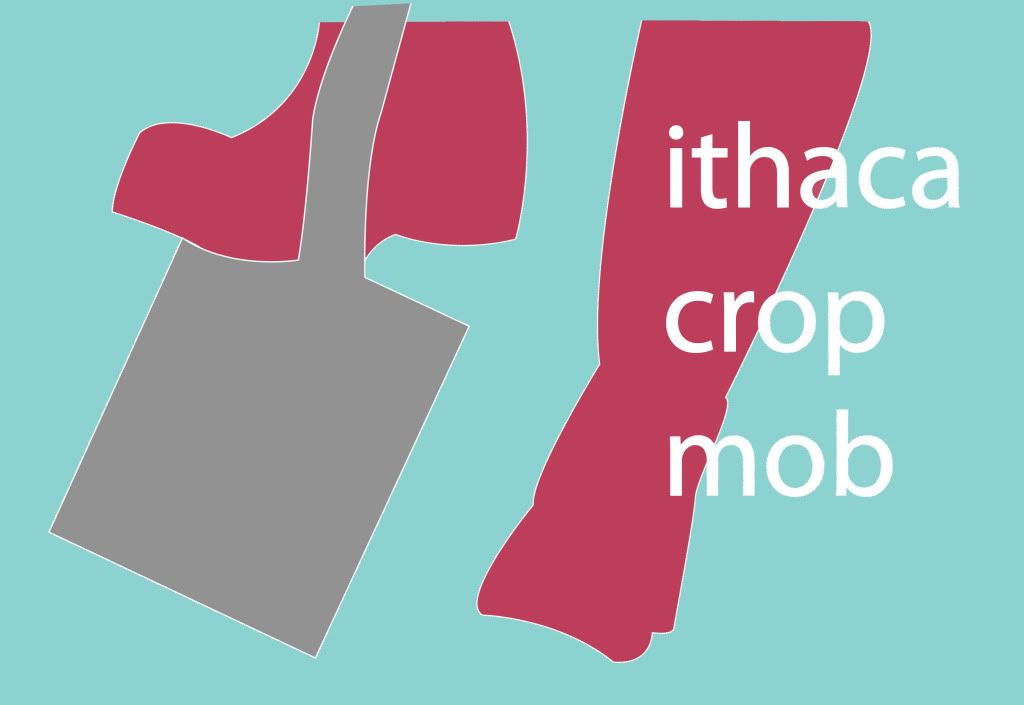Monday, March 22, 2010
Crop Mobbing Around the World
I'm thrilled that this idea is generating interest in Ithaca! My family and I are from the Dominican Republic. Just a few outside of the capital city where I grew up, in a province called San Cristobal, a group of farmers has been gathering at each other's farms for over 30years to help weed, sow, and harvest a variety of crops. The same ideas outlined in the Ithaca group of what crop mobbing is apply to this farmer's organization. I've had the privilege to see them work. The comraderie is beautiful. I hope that we can foster a similar practice and community bond here in Ithaca. Here is a short documentary about these farmers: http://www.youtube.com/watch?v=uDOt7Mjr3uI
Friday, March 12, 2010
Crop Mobbing's NC Origins
Crop Mobbing Mentioned in the NYT
“Who brought their own wheelbarrow?” Rob Jones asked the group of 20-somethings gathered on a muddy North Carolina farm on a chilly January Sunday. Hands shot up and wheelbarrows were pulled from pickups sporting Led Zeppelin and biodiesel bumper stickers, then parked next to a mountain of soil. “We need to get that dirt into those beds over there in the greenhouse,” he said, nodding toward a plastic-roofed structure a few hundred feet away. “The rest of you can come with me to move trees and clear brush to make room for more pasture. Watch out for poison ivy.”
Bobby Tucker, the 28-year-old co-owner of Okfuskee Farm in rural Silk Hope, looked eagerly at the 50-plus volunteers bundled in all manner of flannel and hand-knits. In five hours, these pop-up farmers would do more on his fledgling farm than he and his three interns could accomplish in months. “It’s immeasurable,” he said of the gift of same-day infrastructure.
It’s the beauty of being Crop Mobbed.
The Crop Mob, a monthly word-of-mouth (and -Web) event in which landless farmers and the agricurious descend on a farm for an afternoon, has taken its traveling work party to 15 small, sustainable farms. Together, volunteers have contributed more than 2,000 person-hours, doing tasks like mulching, building greenhouses and pulling rocks out of fields.
“The more tedious the work we have, the better,” Jones said, smiling. “Because part of Crop Mob is about community and camaraderie, you find there’s nothing like picking rocks out of fields to bring people together.” Read more...
Thursday, March 11, 2010
Farmer Information
Hello Farmers!
My name is Katie Church, and I coordinate the Full Plate Collective, a CSA collective in the Ithaca area.
